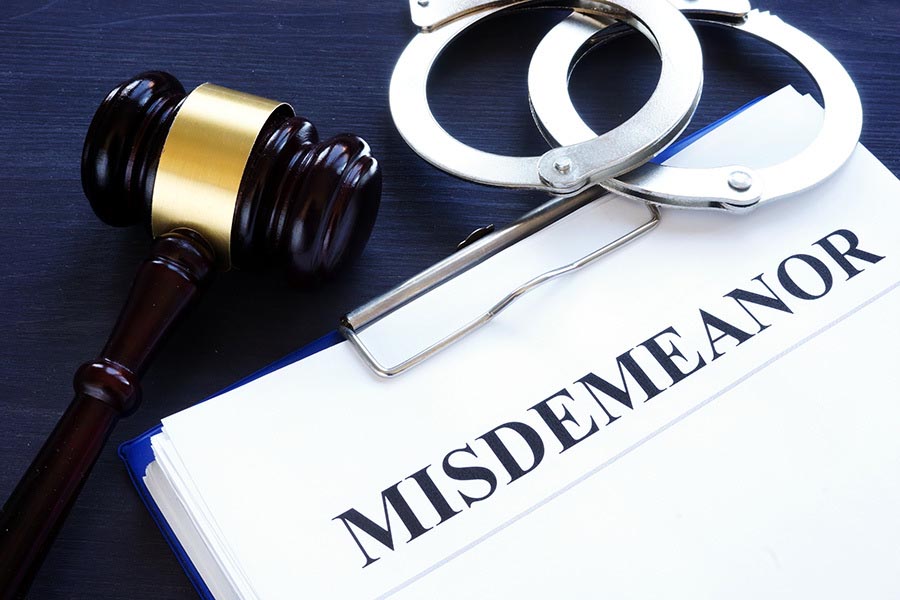Felony Battery Under California Penal Code 243(d): Serious Bodily Injury

In California, battery charges are “wobblers,” meaning they can be charged as either misdemeanors or felonies, depending on the circumstances of the alleged crime. Typically, simple battery cases without aggravating factors are charged as misdemeanors.
However, battery accusations can cross the line into felony territory under California Penal Code Section 243(d) if they result in serious bodily injury.
But what constitutes “serious bodily injury” under California law? And how do you know if a battery accusation against you will be considered a misdemeanor or a more serious felony? This article examines Penal Code Section 243(d) and the factors that influence whether battery charges rise to the level of felonies.
When Does Battery Become a Felony in California?
Battery is an intentional, unwanted touching of another person. However, not every battery charge is treated equally under California law.
A simple battery, such as a shove during an argument, is typically charged as a misdemeanor. However, certain factors can elevate this misdemeanor offense to a felony.
In our experience, the most common way battery becomes a felony is if it results in serious bodily injury. Under California Penal Code Section 242, the legal definition of battery focuses on the use of force or violence against another person. “Serious bodily injury” means “a serious impairment of physical condition,” which could include broken bones, concussion, wounds requiring stitches, or disfigurement. If this applies, the accused may face felony aggravated battery charges.
Other actions that could justify felony battery charges include:
Use of a Deadly Weapon
If the accused utilized a deadly weapon such as a knife, bat, brass knuckles, or firearm during the altercation, this could elevate it to felony charges, even if no injury occurred.
“Vulnerable Victim”
If the complainant is considered especially vulnerable, such as elderly, disabled, or a child, the accused is more likely to have felony battery charges filed against them.
Penalties for Felony Battery Under California Law
In our experience defending clients facing accusations of aggravated battery, the penalties handed down depend greatly on the unique details of each case. However, California law does dictate certain sentencing guidelines that those found guilty of felony battery may face.
Prison Time
If convicted of felony battery in California resulting in serious bodily injury, penalties under Penal Code Section 243(d) can include up to 4 years in state prison. Even more prison time can be added if a deadly weapon is used during the battery.
In especially serious cases where traumatic injury or disfigurement occurred, or the complainants suffer paralysis or other permanent disability, the accused can face even harsher sentences.
Fines
Fines and restitution fines could be north of $10,000 for aggravated battery felonies.
Probation
First-time felony offenders may be placed on probation instead of being sentenced to prison. However, being placed on probation still could carry a jail sentence of up to one year and often comes with strict conditions. These can include mandatory counseling, drug/alcohol testing, community service hours, or restitution to the injured party. Violating any terms of probation risks serving the full prison sentence behind bars.
Restitution
As part of probation or a plea deal, the accused will likely pay restitution funds to the complainant. This compensates them for medical bills, property damage, lost income from missed work, therapy costs, and other hardships. There is no limit to restitution if supported by the evidence.
Legal Defenses Against California Felony Battery Charges
When facing potential penalties this severe, building a strong legal defense is crucial. An experienced California criminal defense firm can evaluate the prosecution’s evidence and identify weaknesses that could lead to reduced or dismissed charges.
Here are some of the most effective legal defenses we frequently employ in defending clients against felony battery accusations:
Self-Defense
If ample evidence suggests our client faced a threat of violence or harm from the alleged victim, claiming self-defense can eliminate or reduce charges. The actions must match a reasonable use of force to protect oneself or loved ones.
Defense of Others
Similar to self-defense, if our client reacted to defend another person from harm, this may constitute legal justification for battery and dismissal of felony charges.
Mistaken Identity
In some cases, such as a bar fight with multiple participants, we can argue misidentification of the perpetrator if evidence suggests reasonable doubt. Eyewitness testimony has been proven highly unreliable.
No Serious Injury Occurred
If medical records, doctor testimony, or other evidence fails to conclusively prove serious or traumatic injury resulting from the alleged battery, charges may revert back to a misdemeanor.
The complexity of proving any felony battery accusation means a tough legal fight likely awaits if formally charged. Having the right, locally-experienced criminal defense team in your corner from the very start can make all the difference. Our firm has achieved dismissals, plea bargains to lesser charges, and jury trial acquittals for clients facing battery allegations.
Frequently Asked Questions About Felony Battery In California
Will I go to prison if convicted of felony battery in California?
It is possible. A conviction for felony battery resulting in serious bodily injury can carry a state prison sentence under California law. Penal Code Section 243(d) establishes sentencing guidelines of 2, 3, or 4 years in prison if probation is denied. Aggravating factors or prior convictions can extend prison time considerably.
What is the difference between misdemeanor battery and felony battery?
The main difference is the extent of injury caused and the potential punishment if convicted. Misdemeanor battery may involve minimal injuries, whereas felony aggravated battery results in grave impairment like broken bones, wounds needing stitches, concussions, or disfigurement. Other elevating factors are weapon use or “vulnerable victims.”
What legal defenses could help fight my felony battery charges?
Viable legal defenses against felony battery charges include arguing self-defense/defense of others, mistaken identity in group altercations, lack of conclusive evidence proving traumatic injury occurred, or the complainant sustaining injuries via separate causes aside from the alleged battery incident.
Start Regaining Control of Your Future Today
If you or someone you love is facing potential felony battery charges in California, swift action is imperative. The penalties can be life altering and long lasting. Give us a call today to set up a case evaluation with one of our attorneys and learn how to best protect your freedom and future.
Too often, we see clients who “wait and see,” unsure of the legal landscape ahead, only for charges to escalate. They then find themselves backpedaling into a bad defense and an even worse lawyer. Don’t let that happen to you. Protect your freedom. Protect your future. Know your rights.
The contents of this article and blog are meant for informational and marketing purposes only and do not constitute legal advice. Viewing and/or use of the blog does not form an attorney-client relationship. No statements in this post are a guarantee, warranty, or prediction of a particular result in your case.









